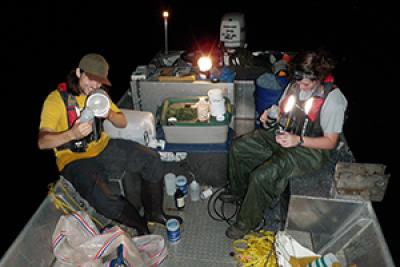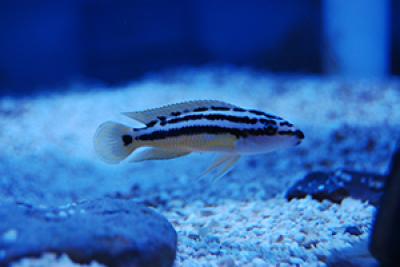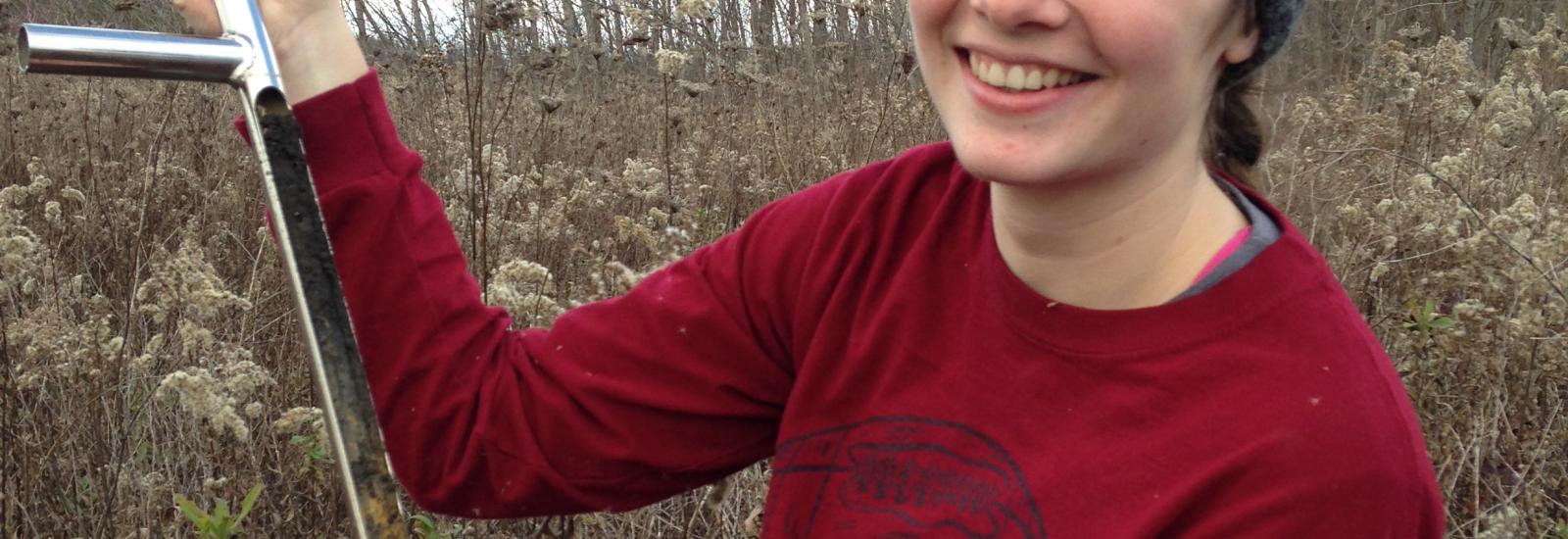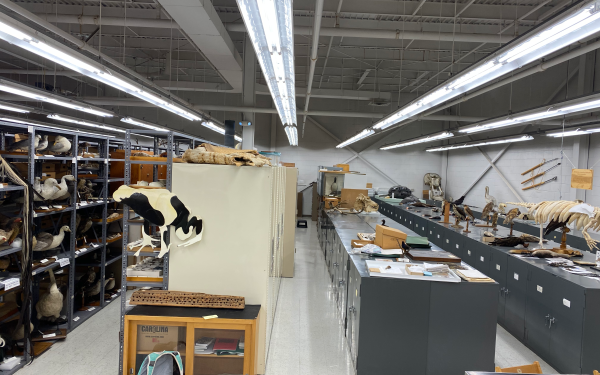- Learn new skills
- Strengthen your resume
- Explore possible careers
- Make new friends and colleagues
- Work closely with a faculty mentor
- Take advantage of being at a leading research university.
Some students do projects in natural habitats or outdoor experiments, while others focus on laboratory, museum, or information-based studies. Completing a meaningful research project entails a large time commitment, and you should have a GPA of at least 3.0 before you branch out into research. Framing a novel question, figuring out how to answer it, and communicating your findings to others are the three basic components of a successful research project.

Start thinking about research options as freshmen and sophomores. You can do research during the summer and/or during the academic year, and you do not need to be an honors student or an E&E or Zoology major. Some students start by volunteering, working as a paid research assistant, or taking an independent study course with an EEOB faculty member. Once you are ready to begin, you can sign up for EEOB research credits, apply for funding, and carry out a project that can be presented at the Denman Undergraduate Research Forum .
- Take advantage of the university Undergraduate Research & Creative Inquiry Office for undergraduate research postings, news, workshops, advice, funding opportunities, listserve sign-up, and other resources.
- For general advice about undergraduate research and honors theses in EEOB, you can contact:
- Dr. Ian Hamilton -- Evolution and Ecology Honors Coordinating Advisor
- Dr. Lisle Gibbs -- Zoology Honors Coordinating Advisor
- Look for organizations that offer the chance to sign up for a summer research project and receive a paid fellowship or scholarship. These include:
- fellowships at Stone Lab on Lake Erie
- University of Michigan Biological Station.
- search the National Science Foundation website for information about Research Experience for Undergraduates (REU) programs in ecology and evolution nationwide. Most deadlines for paid summer fellowships occur in February and March.

- It is more common for students to take the initiative to find a faculty mentor at OSU. Check out the EEOB faculty Directory to see which faculty members are investigating topics that interest you.
- Ask if they would be able to help you plan a research project. If the professor is not able to serve as your mentor, ask for advice about other possible mentors.
- Professors who can take on a student will work with you to explore possible projects that are feasible for the time you have available.
- Students often work closely with a graduate student or postdoctoral researcher in the professor’s lab, where everyone is focusing on related research questions.
- Be flexible about what you do for your project so you can take advantage of your mentor’s expertise and contribute to their research program (you don’t need to know what you will investigate before meeting with a potential mentor).
- As you begin considering various projects, keep in mind that the process of doing research is ultimately more valuable to you than the exact topic of study.
- Most important, your project should be stimulating, doable, and rewarding. With luck, it will also end up being a lot of fun! A good initial goal is to be able to present your “work-in-progress” or final product at the annual Denman Undergraduate Research Forum that takes place in May.
- The Undergraduate Research Laboratory (U-Research)™ in the Department of Evolution, Ecology, and Organismal Biology is established to provide opportunities for undergraduate students to conduct supervised independent research in behavioral ecology. It is especially suitable for undergraduates who consider careers in basic scientific research, secondary education, and graduate programs in biological and behavioral sciences. Students in U-Research also participate in a variety of outreach activities by going to local grade schools and engaging grade students in hands-on activities.
Here are a few examples of honors theses from former students who worked in EEOB.
- Alex Johnson, The effects of third-party interactions on investment in cooperative behavior in the cooperatively-breeding cichlid, Neolamprologus pulcher.
Faculty mentor: Dr. Ian Hamilton - Jo Pi and Jeff Cronley, Modeling the distribution of mobile pastoralists in the Logone floodplain
Faculty mentor: Dr. Ian Hamilton - Elizabeth Hoskins, Modeling the social influences on growth in group-living fish.
Faculty mentor: Dr. Ian Hamilton - Sarah Kiger, “Competitive ability of non-native prairie species in response to soil nitrogen and diversity.”
Faculty mentor: Dr. Maria Miriti. - Aubrey Griffin, “Isolation of DNA SNP Markers for Massasauga rattlesnakes.”
Faculty mentor: Dr. H. Lisle Gibbs.



